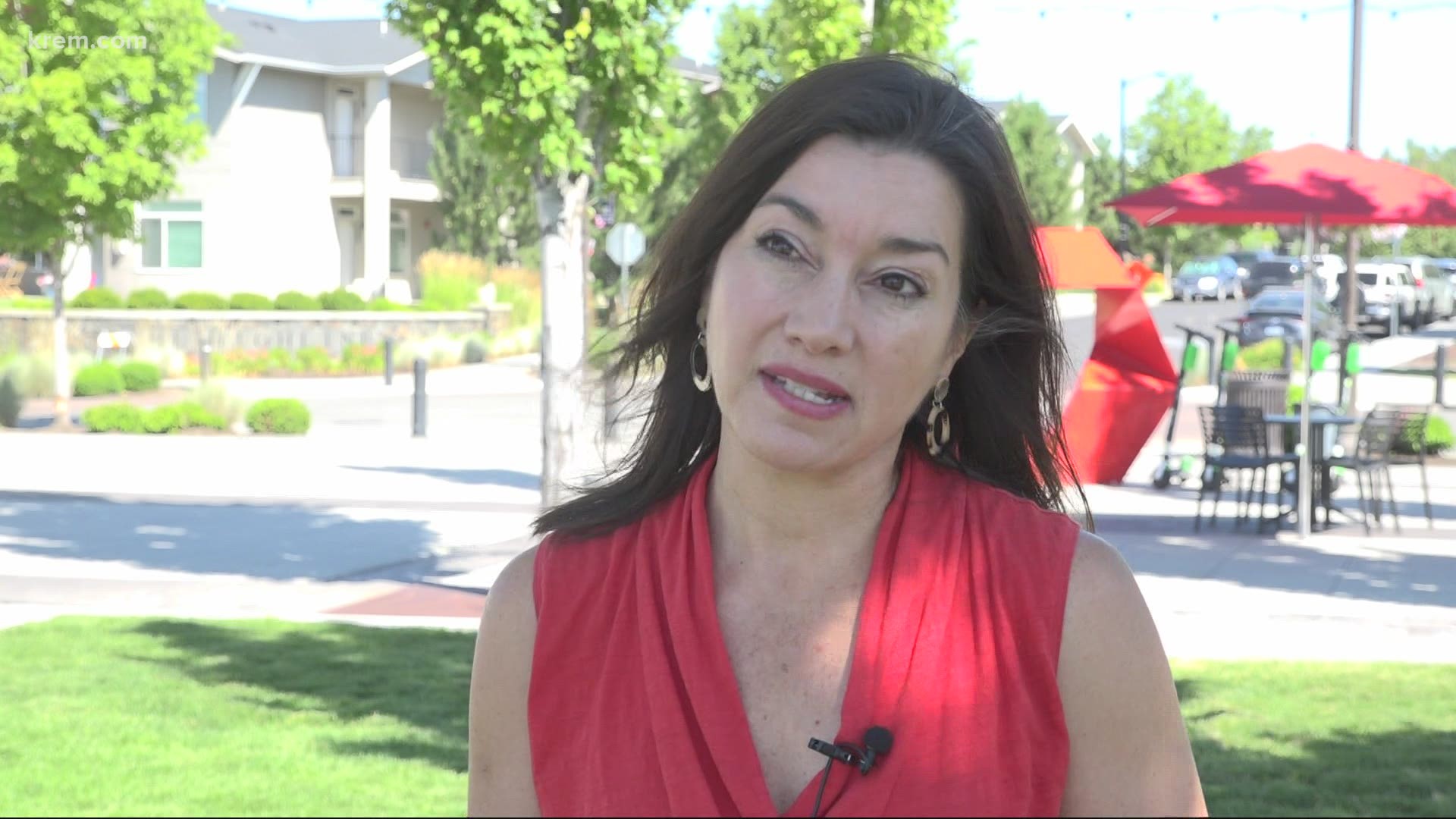SPOKANE, Wash. — Across Spokane and much of Washington, tenants are getting notices from their landlords that their rent is about to go up dramatically, sometimes by 100 percent or more.
It comes as the statewide moratorium on rent hikes instituted by Governor Jay Inslee during the pandemic expired at the end of June.
So why are these increases happening, and are they even legal? We asked the experts.
Why rent is going up
Daniel Klemme, president of the Landlords Association of the Inland Northwest, told KREM there are a plethora of factors pushing up rents.
The first reason: demand for housing is shooting up as Spokane grows.
"I think there's just a lot more people that can live here now, because so many more jobs are work from home," said Klemme.
Second, supply is going down. People who owned homes that they rented out are now selling those houses given the hot market, leaving less spaces to rent.
Third, landlords are looking to recoup money they didn't get during the pandemic.
"[During] the eviction moratorium, there was a significant amount of non-payment of rent," said Klemme. "A lot of landlords... some of them have tenants that haven't paid that owe $15,000 to $20,000. And so the only thing they can think to do to try to recapture some of that profit, or even just to break even, is to raise the rents on all their units."
Klemme also blames new state laws that create more protections for tenants and restrictions on landlords.
"If it takes $5,000 to $10,000 to evict somebody, you can no longer charge a tenant for that," he said. "And so those costs have to go somewhere."
Three other reasons he cites: property values going up costing landlords more in property taxes, lumber getting more expensive and increasing the cost of maintenance and renovations, and general uncertainty about the future of the housing market.
Klemme says the best way to get prices to stabilize would be to increase housing supply.
"The housing stock isn't being replaced with new building," he said. "So really, I think the best way to bring the prices down right now is to build more."
What protections for tenants exist
Monica Holland, a managing attorney at the Northwest Justice Project in Spokane, says locally there are basically no restrictions on how much landlords can raise your rent.
"There is no rent control in Washington State right now," she said. "So landlords can charge as much rent as they want as often as they want."
The only requirements, she said, are related to giving tenants proper advance notice of the increase.
"Your landlord has to give you 60 days advance notice, it has to be in writing, and the rent increase cannot take place cannot become effective during the term of your lease," said Holland. "The term of your lease has to end first and then the rent increase can kick in."
If you're in some sort of subsidized housing, the notice period is shorter.
"Those tenants need to only receive 30 days of written notice of a rent increase," said Holland. "So it's really important to know what kind of rental agreement you have."
Since the moratorium on rent hikes expired at the end of June, Holland believes the earliest landlords could give notice of increased rent is July 1, meaning the soonest the rent could actually go up is September 1 for non-subsidized tenants, or August 1 for subsidized ones.
If your landlord notified you anytime after July 1, that would give you another month before the increase could kick in.
There is one exception under which it may be illegal for landlords to raise rents, according to Holland. That would be if they accepted rental assistance funds from the government that were provided on the condition that they did not raise rent. She says if landlords do receive such funds, they are required to notify their tenants about it.
If you think a law may have been violated and want to look into it more or request legal assistance, Holland suggest going to Washington Law Help or calling NWJP's CLEAR hotline.
Sign up for the KREM 2 News 2 Know e-mail newsletter, and never miss top stories for Spokane and North Idaho:

